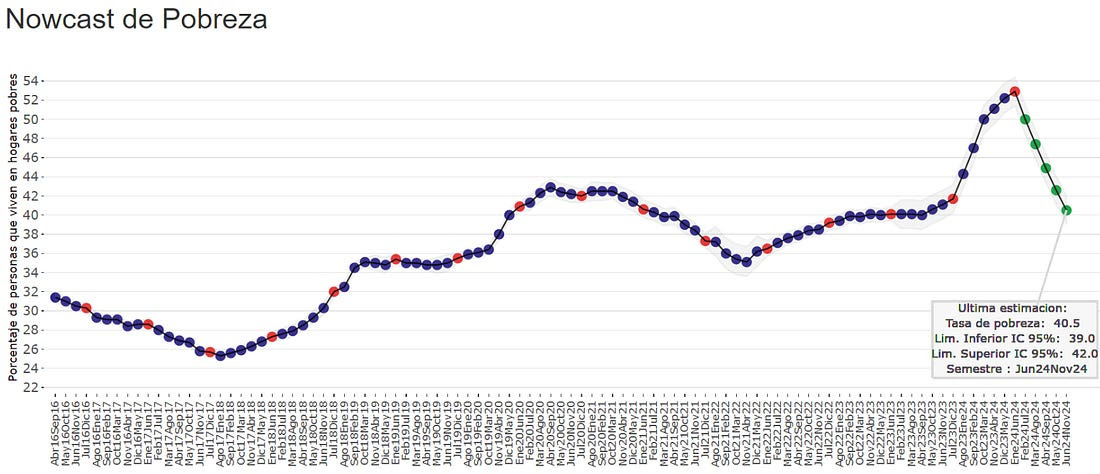Javier Milei is causing an epidemic of blindness in Western economists and journalists! Alert the WHO!
Ever since our very first episode of Haman Nature, Tyrone and I have been fascinated by Argentina’s (then) brand new president, Javier Milei. I mean, how could we not? In a country of avowed socialists — heck, in a world of avowed statists of all stripes — here comes a man running on the principles of libertarian anarchism, championing the ideas of Mises, Rothbard, Hayek, and Hoppe.
And he won! Milei was seated as the president of Argentina early in 2024.
That speaks not only to how charismatic and persuasive Milei is personally, but also how screwed up Argentina had become under the socialist policies begun by Juan Peron and continued (largely) until Milei’s election.
It’s hard to believe, but in the early 20th century, Argentina was the fifth largest economy globally, with a gross domestic product per capita that was twice that of Spain and three times that of Japan. By 1913, Argentina was among the world's ten wealthiest states per capita.
However, economic policies begun in 1946 under Juan Peron sent the country in another direction entirely. When Milei ran for president, Argentina was plagued by debt, poverty, inflation, and a corrupt socialist economic system burdened by massive, bloated state bureaucracies.
In his first year, Milei took his famous chainsaw to government, shouting, “Afuera!” (Out!) as he slashed regulations and bureaucracy, closed superfluous departments, axed the federal workforce, and instituted much-needed monetary reforms.
Considering how difficult it is to turn such a massive thing as a giant economy, Milei’s results after a year are impressive. Monthly inflation fell from 25.5% to 2.4%. Argentina’s economic recession ended, and the federal government saw its first budget surplus in 14 years
You’d think well-meaning onlookers would be pleased!
But we all know that isn’t how ideology works.
Poverty was already above 40% when Milei took office, and the abruptness of his actions caused poverty to spike above 50% in the first half of 2024. Even though Milei had accomplished much to right Argentina’s economic ship, it isn’t hard to predict what the pundits focused on.
The BBC, the Guardian, the Associated Press, and many others all ran the same basic headline: Milei’s reckless government-wrecking measures have made poverty in Argentina the worst it’s been in 20 years! — or similar.
Little or no mention of the positive things Milei has accomplished, and no surmising that these improvements are likely to lower poverty in the future. Nothing but statist jeers and derision.
If they had waited a bit, they might have seen a miracle, with poverty in Argentina quickly falling below 40% in the 3rd quarter of 2024, as reported by the Buenos Aires Times:
The data suggest abject poverty reduced by almost half during the last 6 months of 2024. That’s a miracle, and it’s far more than Milei’s supporters (including me) would have expected.
But is anybody celebrating this? Not many, that’s for sure.
Why?
Again, it’s because this is an exercise in ideology, not economics. How else do you explain the 108 economists that loudly and proudly proclaimed in November of 2023 that if this “political upstart” was elected, his policies were likely to cause “devastation”.
It’s enough to make one wonder if economics is actually a science.
I haven’t heard any of those 108 economists apologizing for their hysterical warnings that betray a fundamental misunderstanding about what markets and governments are and how they work. I don’t expect we ever will.
To paraphrase Jonathan Haidt, ideology binds and blinds. It unites tribes together and it renders invisible any evidence that there is anything wrong with the ideology.
Much like Keynesians and monetary stimulus, regardless of the terrible outcomes, the analysis is always the same: We just didn’t spend enough!
I hope Milei’s successes in Argentina don’t continue to be buried and distorted. America needs to see this positive example of the right way out of our current troubles.
To understand how to cure poverty, one must understand how wealth is created in the first place. Free markets, private property, contracts, free association, and a legal system that enforces the above — and nothing else.
Oh… and it would help if the culture respected these things too, obviously. I choose to be optimistic that we will figure it out. America’s culture was rooted in these things not that long ago. We can take them up again.
Here’s hoping.
Naturally,
Adam
Feeling inspired to chip in and help Haman Nature continue? We run on coffee (reader donations). If you are so inclined, we’d be eternally grateful.





> It’s enough to make one wonder if economics is actually a science.
Turns out, economics isn't *a* science, it's part of *The Science* 🧐
Science quit being science when governments started funding it. I watched it happen. When I first received my PhD I was proud but over the last 50 years grew embarrassed to admit it. First Scientific American then Nature then Science Magazine. Shame on them all.